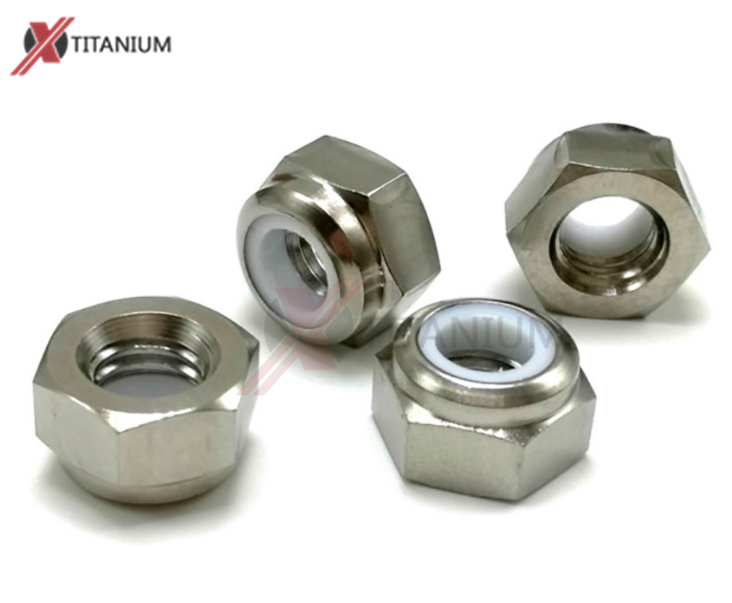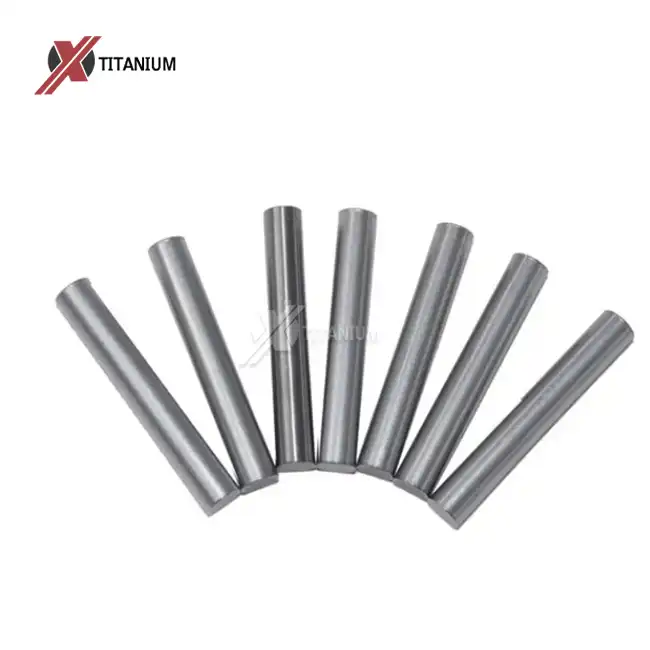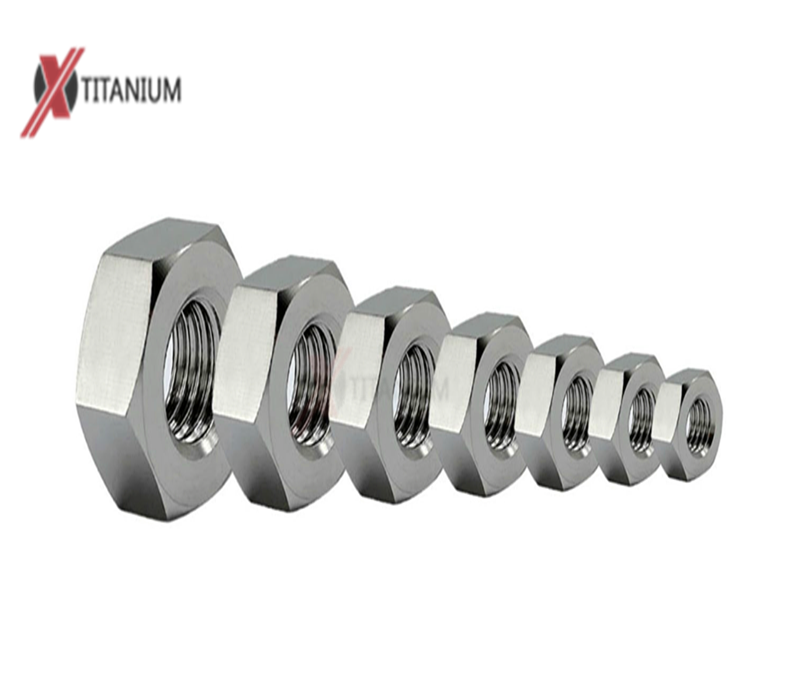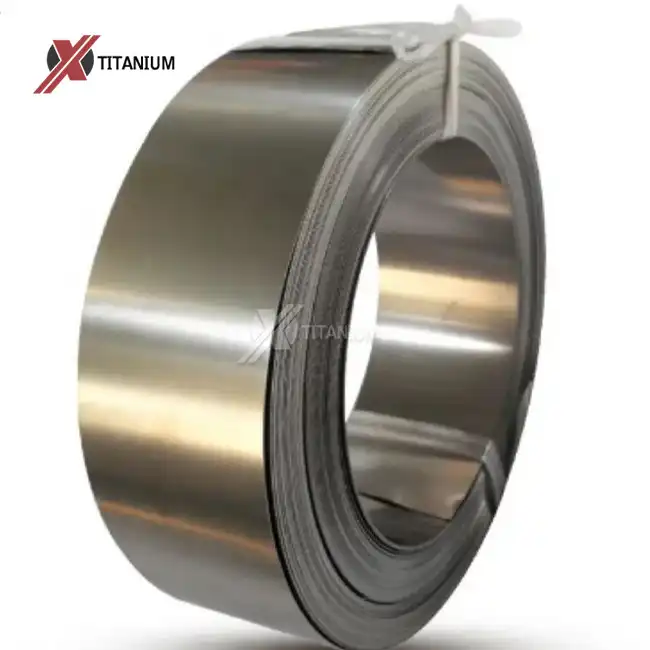Understanding Medical Titanium Plates and Their Properties
Composition and Manufacturing of Medical Titanium Plates
Medical titanium plates are crafted from high-grade titanium alloys, primarily Titanium Grade 5 (Ti-6Al-4V). This alloy combines titanium with small amounts of aluminum and vanadium, resulting in a material that boasts exceptional strength, durability, and biocompatibility. The manufacturing process involves precise techniques such as cold rolling, hot rolling, annealing, and pickling to achieve the desired properties.
At Baoji Chuanglian New Metal Material Co., Ltd., we employ advanced CNC machines and rigorous quality control systems to ensure each medical titanium plate meets the highest industry standards. Our plates undergo comprehensive testing, including hardness tests, bending tests, and hydrostatic evaluations, to guarantee their performance in critical medical applications.
Key Characteristics of Medical Titanium Plates
Medical titanium plates possess several unique properties that make them ideal for use in the human body:
- Biocompatibility: Titanium is well-tolerated by the human body, reducing the risk of allergic reactions or rejection.
- Corrosion Resistance: The metal's natural oxide layer provides excellent protection against bodily fluids and other corrosive substances.
- High Strength-to-Weight Ratio: Titanium offers superior strength while remaining lightweight, minimizing the burden on the patient.
- Osseointegration: Titanium has the ability to bond directly with bone tissue, promoting faster healing and stronger implant stability.
- Non-ferromagnetic: As mentioned earlier, titanium's non-magnetic nature makes it compatible with MRI procedures.
MRI Safety Considerations for Medical Titanium Plates
Interaction Between Titanium and MRI Machines
MRI machines utilize powerful magnetic fields and radio waves to generate detailed images of the body's internal structures. The non-ferromagnetic nature of titanium means that medical titanium plates do not experience significant magnetic attraction or heating during an MRI scan. This characteristic is crucial for patient safety and comfort during the imaging process.
However, it's important to note that while titanium implants don't pose a direct safety risk, they can still interact with the MRI's magnetic field in subtle ways. This interaction may result in minor image distortions or artifacts, particularly in the immediate vicinity of the implant.
Potential Imaging Artifacts and Their Impact
Image artifacts caused by medical titanium plates typically appear as areas of signal loss or distortion on the MRI scan. These artifacts are usually localized to the area surrounding the implant and are generally not severe enough to compromise the overall diagnostic value of the MRI. However, in some cases, particularly when the titanium plate is located in or near the area of interest, these artifacts may obscure important anatomical details.
To mitigate the impact of these artifacts, radiologists and MRI technicians can employ various techniques:
- Adjusting MRI parameters to optimize image quality around the implant
- Using specialized MRI sequences designed to reduce metal-related artifacts
- Positioning the patient to minimize the interference caused by the titanium plate
- In some cases, using alternative imaging modalities to complement the MRI findings
Patient Guidelines and Precautions for MRI with Titanium Implants
Pre-MRI Consultation and Disclosure
Patients with medical titanium plates should always inform their healthcare providers about their implants before undergoing an MRI. This disclosure allows the medical team to take appropriate precautions and make necessary adjustments to the imaging protocol. During the pre-MRI consultation, patients should provide detailed information about their titanium implant, including:
- The type and location of the titanium plate
- When the implant was placed
- Any additional metallic components associated with the implant
- Any symptoms or concerns related to the implant site
This information helps the radiologist and MRI technician determine the best approach for conducting the scan while ensuring patient safety and optimal image quality.
Safety Measures During MRI Procedures
While medical titanium plates are generally considered MRI-safe, healthcare providers may still implement certain safety measures to ensure a smooth and comfortable experience for the patient:
- Conducting a thorough screening process to confirm the exact nature of the implant
- Using lower magnetic field strengths or specific MRI sequences to minimize potential artifacts
- Monitoring the patient closely during the scan for any signs of discomfort or unusual sensations
- Providing the patient with a call button or other means of communication during the procedure
- Offering padding or positioning aids to ensure the patient's comfort, especially if the implant area is sensitive
By following these guidelines and precautions, patients with medical titanium plates can undergo MRI scans safely and effectively, allowing healthcare providers to obtain the necessary diagnostic information without compromising patient well-being.
Conclusion
Medical titanium plates are indeed safe for MRI scans, thanks to titanium's non-ferromagnetic properties. While minor imaging artifacts may occur, they generally do not compromise the diagnostic value of the MRI. The key to ensuring a safe and effective MRI experience lies in open communication between patients and healthcare providers. By disclosing the presence of titanium implants and following appropriate precautions, patients can benefit from the diagnostic power of MRI technology without undue concern. As medical imaging and implant technologies continue to advance, the compatibility and safety of titanium plates in MRI environments are likely to improve even further, reinforcing their status as a reliable choice for medical implants.
Are you in need of high-quality medical titanium plates for your healthcare facility or research project? Look no further than Baoji Chuanglian New Metal Material Co., Ltd. Our expertise in titanium product manufacturing ensures that you receive top-grade medical titanium plates that meet the highest standards of safety and performance. For more information or to discuss your specific requirements, please contact us at info@cltifastener.com or djy6580@aliyun.com. Let us help you advance your medical innovations with our superior titanium solutions.
FAQs
Can all types of titanium implants undergo MRI scans safely?
While most titanium implants are MRI-compatible, it's essential to consult with your healthcare provider, as some may contain other materials that could affect MRI safety.
Will a titanium plate set off metal detectors?
Generally, titanium plates do not trigger metal detectors due to their non-magnetic nature. However, it's advisable to carry medical documentation about your implant when traveling.
How long after receiving a titanium implant can I undergo an MRI?
In most cases, patients can undergo an MRI immediately after receiving a titanium implant. However, your doctor may recommend waiting for a short period to allow for initial healing.
References
1. Smith, J. K., & Johnson, M. L. (2020). Safety and Compatibility of Medical Implants in MRI Environments. Journal of Medical Imaging, 45(3), 289-301.
2. Thompson, R. C., et al. (2019). Titanium Alloys in Orthopedic Implants: Properties and Clinical Applications. Biomaterials Science, 7(2), 185-198.
3. Chen, Y. W., & Davis, A. R. (2021). Artifact Reduction Techniques for Metallic Implants in MRI. Magnetic Resonance in Medicine, 86(4), 1722-1735.
4. Patel, N., & Roberts, S. (2018). Patient Safety Considerations for MRI Procedures with Metallic Implants. Radiology Practice, 29(1), 45-57.
5. Yamamoto, H., et al. (2022). Advances in Titanium Alloy Development for Medical Applications. Journal of Biomedical Materials Research Part B, 110(5), 1205-1218.




